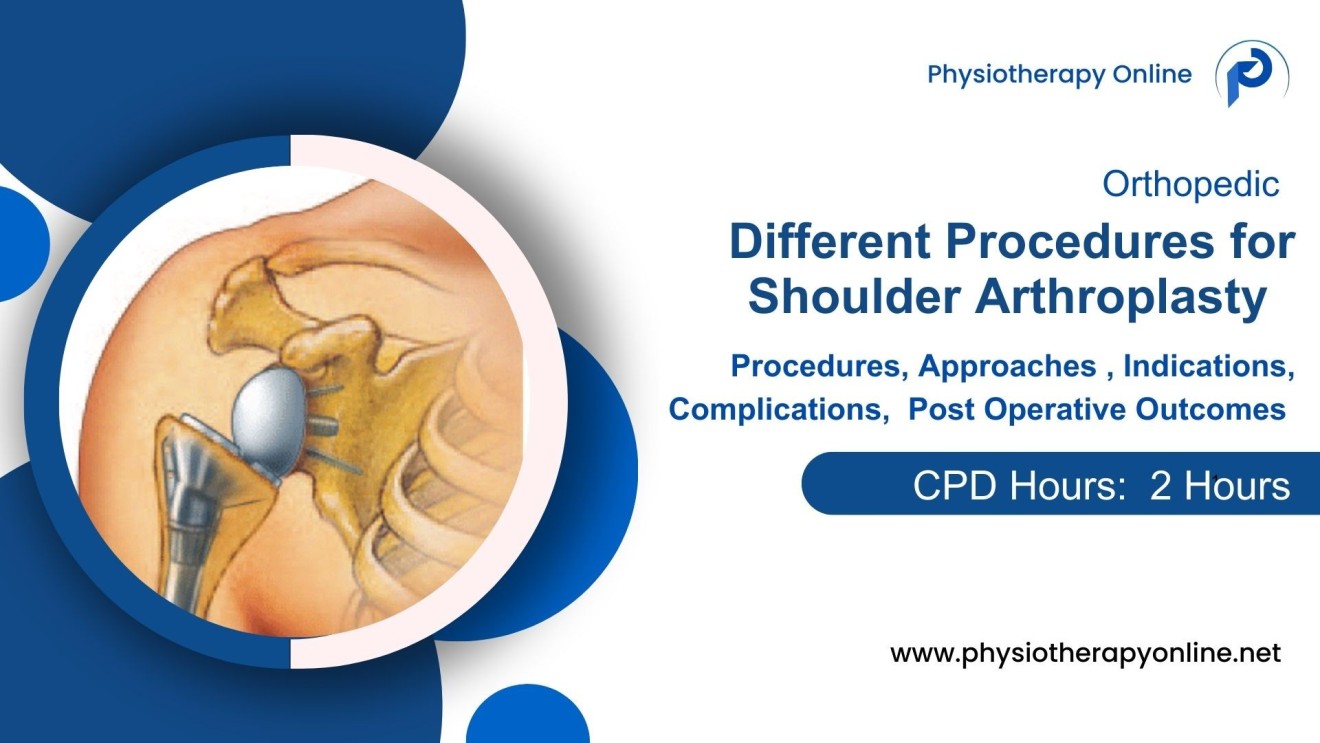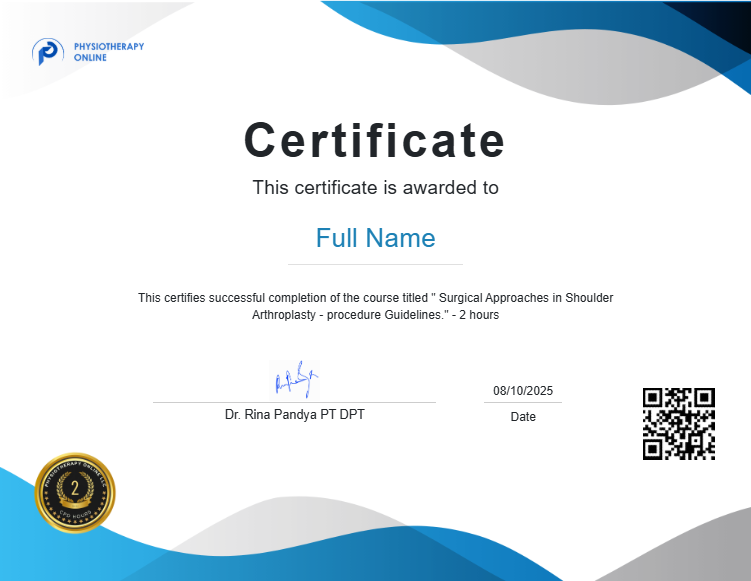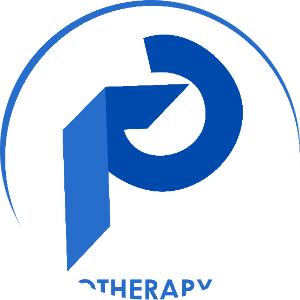About Course
The options of surgery within the field of shoulder arthroplasty is versatile, and aims to serve various shoulder problems and diseases. Knowledge of these choices is helpful for healthcare clinicians in the treatment of patients with shoulder joint replacement. This online physiotherapy course offers an advanced understanding of the various forms of shoulder replacement, including total shoulder replacement, half-total shoulder replacement, and reverse shoulder replacement.
By this physio CPD courses physioteharpist can understand indications for the surgeries, the techniques being used, the goals of the procedures, and the possible complications arising from the surgeries; the physiotherapist will be equipped with knowledge that would be useful in making decisions when patient care is being provided.
Furthermore, the online physiotherapy course highlights the need to ensure appropriate preparatory evaluations are made before the operation.
Learning Objectives:
- Differentiate between various types of shoulder arthroplasties, such as total, hemiarthroplasty, and reverse shoulder arthroplasty, by comprehensively understanding their indications, surgical techniques, expected outcomes, and potential complications, facilitating informed decision-making and treatment planning in clinical practice.
- Conduct comprehensive pre-operative assessments for patients undergoing shoulder arthroplasty, including medical history review, physical examination, and diagnostic imaging interpretation, to optimize patient selection, identify potential risk factors.
Learning Outcome
- Compare total shoulder arthroplasty, hemiarthroplasty, and reverse shoulder arthroplasty according to their medical applicability, surgeries, results, and possible side-effects.
- Intensive preoperative investigations on patients with shoulder arthroplasty with regard to medical records, physical examination, and imaging to enhance patient selection and recognize surgical risks.
- Enhance clinical decision making and management in clinical practice considering various shoulder arthroplasty types and pre-operative assessment strategies.
- Identify possible complications of the various types of shoulder arthroplasty and the likely outcomes to improve patient information and post-surgical management plans.
- Physiotherapist will be able to assess patient by gaining insight into their medical history and performing physical assessment and diagnostic imaging owned by a client. These skills play an important role in refining choices of patients for the specific surgery and in detecting signs that could bring more risks to the surgery or treatment procedure, in order to provide improved quality services to the patient.
Who Should Enroll
- Physiotherapist
- Orthopedics
- Occupational Therapist
- Athletics Trainer
- Sport Physiologist
CPD Credit Hours
2 Hours
Resources
- 30 Days Access to Learning Resources
- Downloadable Course Material
- CPD Certificate
Disclaimer: Our online physiotherapy courses meet the criteria and guidelines for CPD (Continuing Professional Development). The CPD hours indicated on the certificate contribute towards fulfilling professional standards and requirements necessary for CPD audits conducted by the HCPC and AHPRA. These CPD hours are important for maintaining physiotherapy registration and ensuring compliance with CPD audit and Physiotherapy registration renewal processes. Our courses are recognized as valuable continuing education resources across the UK, Australia, New Zealand, and throughout Asia and the Middle East.
Course Presenter:
Dr. Rina’s physical therapy career spans over 23 years, through the UK, the USA and the Middle East. She has worked in Nationalized Healthcare Services, American health care and self pay services in acute care, in-patient rehab, skilled nursing facility, home healthcare and outpatient clinic. In addition to being a clinician she has developed specialty programs based on evidence-based practice in her role as a project manager. She has also managed the Physical Therapy department in the capacity of Head of Department in a premier private hospital in Oman. Rina is an internationally published webinar presenter; many of her courses are highlighted on Physiopedia/ Physio Plus. Her pocket books are now available on Amazon titled-- Orthopedic Assessments made easy Dr. Pandya graduated from Manipal University, India in 2000 as well as University of Michigan, in 2018 with a Doctor of Physical Therapy. Rina conducts live webinars and is part of the continuing professional development teaching community with courses published in the UK, US, South Africa, Ireland and Australia. Rina is a member of APTA, HCPC-UK and OAP-Oman.


